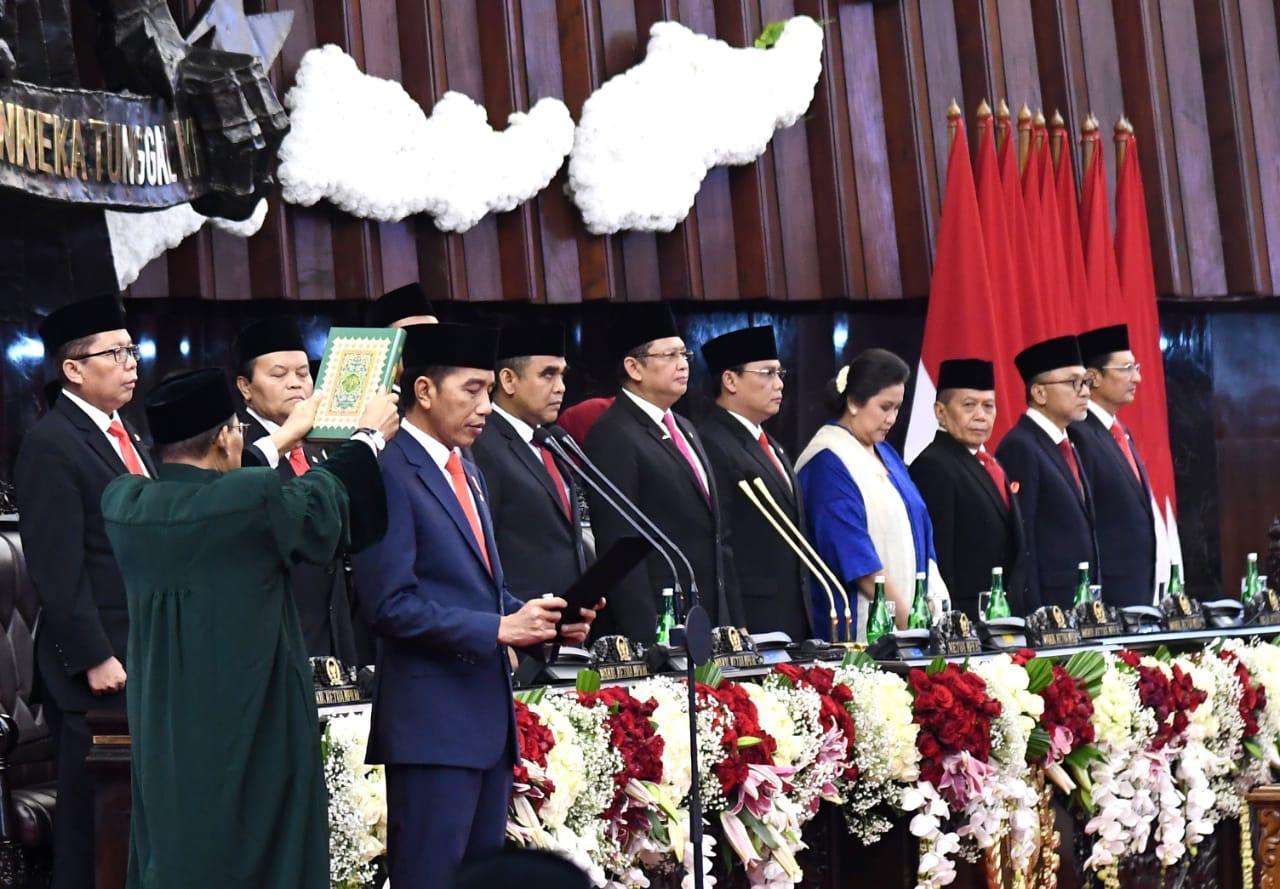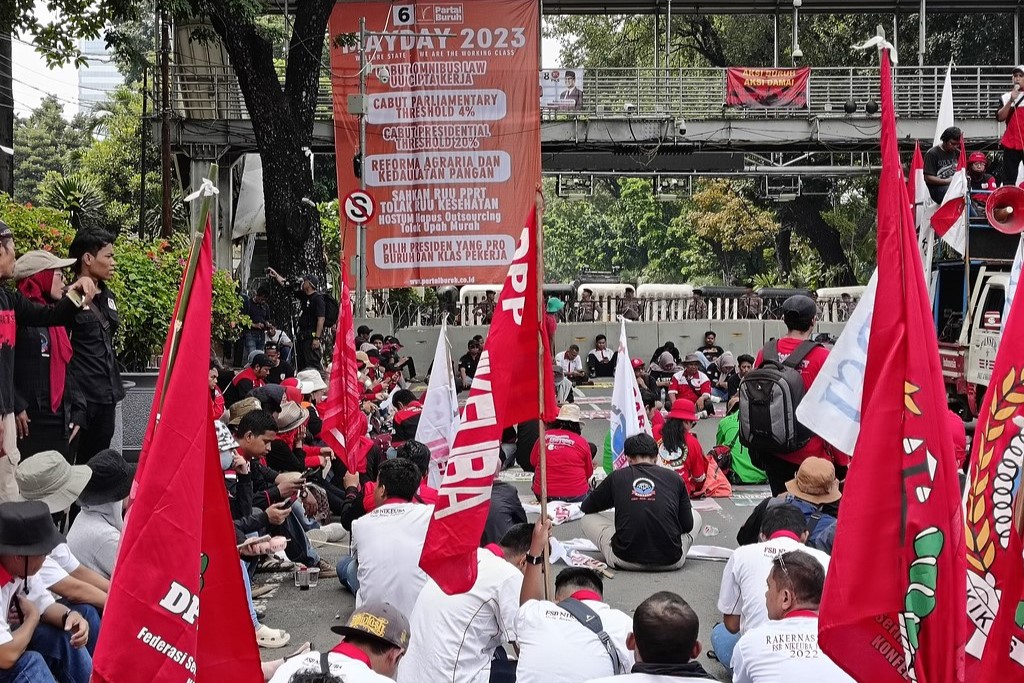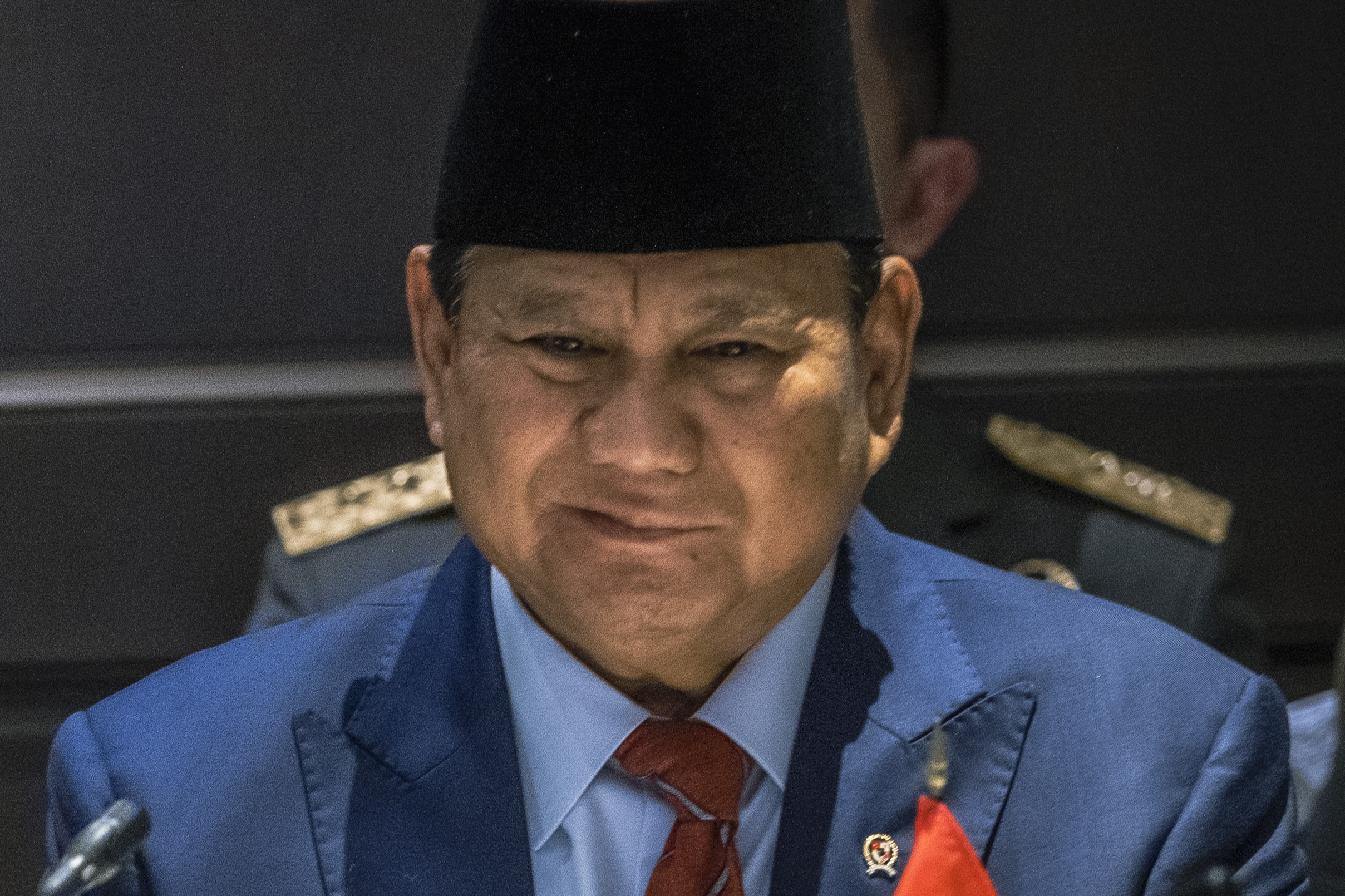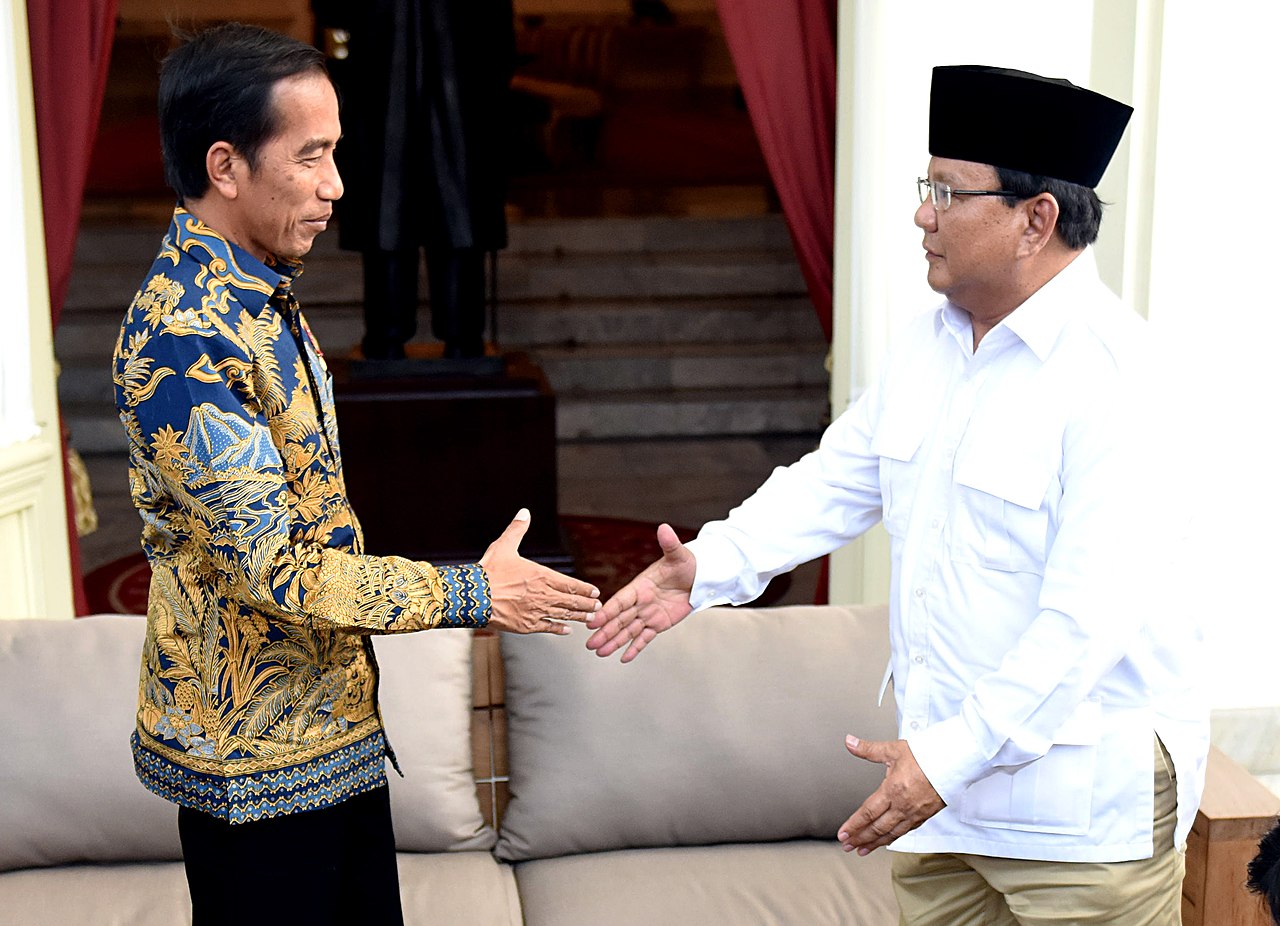On 14 February, 200 million Indonesians took to the polls to vote for a new leader. Official results are due in March, but the latest counts project that Prabowo will become Indonesia’s next president in October. In an election that many pundits have deemed the dirtiest ever, the ex-general garnered 58 percent of the vote in just one round, defeating his two other rivals – Anies Baswedan and Ganjar Pranowo – by more than 30 percent. Prabowo ran as the direct successor to Jokowi and promised to continue his policy. In fact, he would not have won the election without the support of Jokowi, who had his eldest son, Gibran Rakabuming, as vice-presidential running mate.
The market reacted positively to the news of Prabowo’s decisive victory. The Jakarta Composite index ended 1.3 percent higher after the unofficial quick counts put Prabowo far ahead of his rivals. The market cares very little about the deluge of complaints from the liberals that Prabowo’s victory is tainted with fraud. As long as Prabowo promises to continue Jokowi’s policies that have benefited the capitalists, democracy can be put to the side as a petty inconvenience.
Jokowi and his political dynasty
Since day one, the election has been beset by scandals and controversies. The moment Jokowi broke away from his patron Megawati Sukarnoputri and the Indonesian Democratic Party of Struggle (PDI-P), and charted his own political path, the “Ndeso” president (Ndeso means Javanese red-neck) remained at the centre of the spotlight during the election, despite no longer able to contest it given the two-term limit. With 80 percent popular support, Jokowi was truly a kingmaker in this election and he made sure everyone knew it. His endorsement would secure victory for any candidate. Thus, it came as a shock for Megawati when Jokowi decided not to support PDI-P’s candidate, Ganjar. Instead, he lent his support to Prabowo, his bitter opponent in the 2014 and 2019 presidential elections.
Just 10 years ago, when Jokowi was first elected, Megawati publicly reminded him who held the leash: “I made you a presidential candidate. But you should remember that you are a party official, with a function of implementing the party’s programs and ideology.” But these intervening 10 years did not pass for nothing for Jokowi. He skillfully built his own political dynasty and he was able to break free from Megawati. Using his position as the commander in chief, he assembled around him an army of loyal courtiers, penetrating the government from top to bottom, bureaucrats who owe him their jobs and the privileges that come with them.
Jokowi also had his own family members climb to positions of influence. His youngest son Kaesang became the chairman of the Indonesian Solidarity Party (PSI); his eldest son Gibran mayor of Surakarta and soon-to-be vice president; his son-in-law Bobby Nasution the mayor of Medan, the largest city in Sumatra; and his brother-in-law Anwar Usman the Chief Justice of the Constitutional Court. The latter was especially instrumental in allowing Gibran to contest the election. In a controversial ruling, the Constitutional Court amended the minimum age requirement of 40 for presidential and vice-presidential candidates, thus opening the road for the 36-year-old Gibran to be Prabowo’s vice-presidential running mate.
Lesser evilism
 When Jokowi first came to the national political scene, there was a popular euphoria around him / Image: public domain
When Jokowi first came to the national political scene, there was a popular euphoria around him / Image: public domain
When Jokowi first came to the national political scene, there was a popular euphoria around him as he was seen as far removed from the stale and foul corridor of power. Hailing from a modest background and with a clean track record, Jokowi was lauded as an icon of progressive reform whose programme of “Mental Revolution” would rid the government of corruption, collusion, and nepotism and rejuvenate democracy.
The liberals were particularly falling head over heels for Jokowi, only to find later that their love is unrequited. Instead of being the beacon of democracy, during his 10-year rule Jokowi delivered devastating blows to democratic rights, passing a series of laws that stifle dissent and freedom of expression. Hundreds of labour, peasant, and environmental activists were criminalised under his rule.
Just last year, the government overhauled the criminal code under which people can be punished for dishonouring the president, the legislative body, or the judiciary. In addition to that, the overhauled criminal code further outlaws communism and Marxism.
Jokowi has also significantly weakened the Corruption Eradication Commission (KPK), making the country more corrupt than when he moved into the presidential palace a decade earlier. According to Transparency International, Indonesia now ranks 115 out of 180 countries surveyed. In 2014 when he took office, Indonesia ranked 107. His “Mental Revolution” proved to be an electoral gimmick to lull the masses. In reality, corruption cannot be separated from Indonesian capitalism and its state. The KPK was formed in 2003 following the 1998 Revolution that overthrew Suharto and the resulting mass pressure around issues of corruption. But since then, KPK has been weakened year after year, and it has become virtually toothless. Corruption remains endemic at all levels of government. In weakening KPK, Jokowi is only continuing what has been done before by his predecessors. In fact, he has been weakening any oversight over government and business practices to fast-track big-ticket projects and investments that are needed to ensure the high-growth economy that he promises.
Finally, the passing of the Omnibus Law in 2021 was the centrepiece of Jokowi’s government. The Omnibus Law radically revised dozens of laws to create a better investment climate for the capitalists, which translates into lower wages, less job security for workers, weakened environmental protections, and more tax breaks for corporations. Just like any other bourgeois president, Jokowi’s loyalty is to the capital, not ‘democracy’ or any other abstract progressive ideas that the liberals ascribed to him.
In the previous two elections, liberal democrats and many left activists, even those who called themselves socialists and Marxists, were supporting Jokowi as the lesser evil to the so-called ‘fascist’ Prabowo. Yet this lesser evilism politics has brought in the greater evil in the person of Jokowi himself. First, it was Jokowi who did exactly what the liberals feared Prabowo would do if he was elected. Second, following the 2019 election, Jokowi immediately embraced Prabowo and brought him to the fold, making him defence minister. As the election year got closer, it became clear that Jokowi was preparing Prabowo to succeed him. The feared ‘fascist’ Prabowo would not have won this election without the support of the ‘democrat’ Jokowi. Using his position, Jokowi mobilised the state apparatus, from lowly village chiefs to cabinet ministers, to campaign for Prabowo.
Those so-called lefts who supported Jokowi moaned that they were let down by Jokowi. In fact, they allowed themselves to be duped. As long as they accept capitalism, they inevitably limit themselves to choosing between this or that brand of capitalism, which in reality are false choices in defence of the status quo.
After witnessing the disaster under Jokowi, they let out a collective cry: “Never again! We shall be wiser next time.” But instead of learning the folly of lesser evilism, these unrepentant lefts merely pivoted their lesser evilism to different bourgeois candidates. Now, Jokowi and Prabowo are the greater evil, and they found themselves advocating for both bourgeois candidates Anies and Ganjar as the lesser evil.
Lesser evilism, either direct or indirect, is nothing but a defence of the capitalist status quo. There are no fundamental differences between all of the candidates. They represent the same interests: those of the bourgeoisie. The bourgeois democracy we live under remains the democracy for the minority exploiters, for the rich. As Lenin pointed out in his State and Revolution, “Marx grasped this essence of capitalist democracy splendidly when, in analyzing the experience of the Commune, he said that the oppressed are allowed once every few years to decide which particular representatives of the oppressing class shall represent and repress them in parliament!”
After the election, the two defeated candidates cried foul about electoral fraud. But it is unlikely that they would present a serious challenge to the court, as they themselves have been engaging in the same dirty practices in every election. The masses can see through their hypocrisy and do not seem to have any appetite to be turned into a battering ram to challenge the election result. There is a certain apathy and cynicism amongst voters vis-a-vis electoral fraud. People have no illusions about democracy at all. They know that all politicians and state officials, from lowly village chiefs to supreme court justices, are corrupt. Vote rigging is no longer a surprise. This is a very dangerous state of things for the ruling class, because this apathy and cynicism could very quickly turn into an open rebellion.
While making grand pronouncements that they will defend the democratic sanctity of the election, behind the scenes all the competing bourgeois parties have already begun lobbying each other on how best to divide the share of the spoils. Following the election, the outgoing president Jokowi did not lose any time meeting with the leader of the National Democratic Party (Nasdem) Surya Paloh, one of the main parties behind the rival candidate Anies, to bring his party to join the grand coalition for Prabowo’s future government. Indeed there are no permanent friends or enemies, only permanent interests, that is the common interests of the capitalist class.
At the moment, the bourgeoisie is demanding continuity and a stable “committee” that could weather the state of the world economy, which is increasingly filled with uncertainty. In the legislative election that took place on the same day, there has been no change in the result compared to last year. There is not one single party that wins more than 20 percent of the votes. A scramble is now underway to ensure that Prabowo can form a governing coalition that commands a majority in the parliament. It seems very likely that Prabowo, with Jokowi’s help as the mediator, will be able to form a sprawling coalition that will include many of their opponents. This will be a lesson in bourgeois democracy for the masses, that no matter which political party they cast their vote for, these parties serve, to use Marx’s phrase, only the “common affairs of the whole bourgeoisie”.
While Jokowi’s government has been a disappointment for many who voted for him, as he has betrayed many of his electoral promises, he remains the most popular president in recent memory. In most polls, he commands 70-80 percent approval. The availability of cheap money in the previous period – which has ended – and the current commodities boom, particularly nickel, coal, and palm oil, have managed to bolster Indonesian economic growth relatively well during Jokowi’s tenure amid global anaemic growth, which in turn allows him to remain popular. Furthermore, the stifling inertia of bourgeois politics and the lack of working-class alternatives also explains Jokowi’s high approval ratings despite not living up to the euphoria he inspired in people a decade earlier.
The masses were participating in this carnival of democracy with very little enthusiasm. But hiding underneath this apparent indifference is a deep disgust toward the whole system. What is lacking is a mass working-class party that could provide a political expression to this subterranean anger of the masses.
The Labour Party
This year’s election saw the entrance of the Labour Party, but it has only managed to garner about 0.6 percent of the votes. Initiated in 2021 mainly by the metal workers’ union, the Labour Party failed to inspire any enthusiasm amongst the wider workers and youth. In fact, at every step, it has pursued opportunist and class-collaborationist policies.
 This year’s election saw the entrance of the Labour Party / Image: public domain
This year’s election saw the entrance of the Labour Party / Image: public domain
The Labor Party was formed not when the labor movement was advancing, but when it was in decline. This dictates the dynamics of the Party. Without a mass movement behind it, there is no active involvement of the masses. As a result, the Labor Party is ultimately just a continuation of the dynamics of the reformist trade unions that built it. It is filled with and controlled by more-or-less the same conservative leaders and bureaucrats who are responsible for the defeats of the labour movement in the previous period.
Since the beginning, the leadership has been pushing the party to support one of the bourgeois presidential candidates. Said Iqbal, the chairman of the party, tried to justify this by saying: “We need a good businessman. Do not be confrontational even though we are the working class. Just like Lula, he is a centre-left, but his vice president was from the right wing. Lula also made a compromise.” This is hardly a mark in Lula’s favour! Such a class-collaborationist approach repels the class-conscious workers and youth.
While there are some left organisations and trade unions in the party, these left-reformist activists are faithfully tail-ending the right wing, who in turn are tail-ending the bourgeoisie. They argue against being too radical to maintain party unity and ensure its success in the election. Haven’t we heard this elsewhere? They thought that by hiding their socialism they could win the masses. In the end, they are not winning anyone to the party, as attested by the election result.
When capitalism is in deep crisis, the only programme that the Labour Party leadership could put forward is one based on the already-antiquated idea of the ‘welfare state’. With such a leadership that lacks courage and imagination, the Labour Party was stillborn. It had the potential to be the alternative mass party that the workers had been looking for, but it was squandered.
The only way that the Labour Party could transform itself into a mass working-class party is by adopting a consistent, clear, revolutionary socialist programme. The party needs to realise its oft-repeated slogan “we are the working class” by doing away with its class collaborationist method that does not serve the working class. This is the only way to inspire and attract the youth and workers who are increasingly disenchanted with corrupt politicians and capitalism.
The future of the Prabowo regime
Prabowo has promised the market that his government would maintain Jokowi’s policies of massive infrastructure spending, commodities export, and attracting foreign investment. He has billed himself as the successor of Jokowi. During Jokowi’s terms, the economy managed to grow about 5 percent every year except during the pandemic and Prabowo seeks to continue this high-growth economy. But this feat might not be possible.
Jokowi was able to keep the economy growing due to several factors: low interest rates and a boom in demand for green energy technology. For the past decade or so, low interest rates have made possible an inflow of cheap money. But this low-interest regime has ended. The only way that the regime could maintain Indonesia’s competitiveness as one of the world’s most attractive investment markets is further counter-reform to labour laws and environmental laws, further lowering corporate taxes which will mean more cuts in social programs. All of these attacks are a recipe for an explosion in class struggle.
 Prabowo has promised the market that his government would maintain Jokowi’s policies / Image: U.S. Secretary of Defense, Wikimedia Commons
Prabowo has promised the market that his government would maintain Jokowi’s policies / Image: U.S. Secretary of Defense, Wikimedia Commons
A boom in nickel exports, fuelled largely by a boom in next-generation energy, has also served as a critical driver of growth, resulting in a trade surplus for the first time in a decade in 2021. Indonesia possesses the largest nickel deposits in the world. Exports of nickel jumped from just $1.4bn in 2014 to nearly $22bn in 2022. This has also fueled foreign investment. Companies like Ford, Hyundai, and BYD, the world’s biggest producer of EVs, have committed billions of dollars in investments to Indonesia. In 2023, FDI grew to an all-time high of $47.3bn, after jumping 46.6 percent in 2022. About a third of it came from China and went into metal and mining industries (see A. Anantha Lakshmi and Andy Lin. ‘In charts: how the Joko Widodo era remade modern Indonesia’s economy.’ Financial Times. 10 February, 2024)
But there are signs that the EV boom is nearing its peak. There is already a worrying overcapacity in China’s EV industry. The Financial Times reported, “Overcapacity still dogs China’s EV industry. In the first four months of 2023, capacity utilisation of the top 10 sellers hovered below 70 percent. Price wars have persisted, suppressing profits.” China has attempted to dump its glut of electric vehicles to Europe, prompting the EU to launch a “protectionist” anti-dumping investigation into Chinese EV industry that is threatening the survival of its carmakers. Nickel prices in turn have fallen from a peak of $50,000 in 2022 to just $16,400 per tonne in February 2024, due to oversupply from Indonesia, much of it from Chinese-owned and operated mines (see: Mohan Yellishetty. ‘What’s behind the collapse in the price of nickel, and how can the industry survive?’ The Conversation. 19 February, 2024.) The nickel boom that has propped the Indonesian economy is at its end.
As Prabowo (and Jokowi) celebrate their victory, rice prices have reached a new height, reaching Rp 14,000 per kilogram, up from Rp 10,000. Across the country, hundreds of housewives have to line up for hours to buy subsidised rice. The prices of eggs, chilli, and other basic needs are also climbing. This has created an unbearable situation for the poor. The invisible hand of the market is toying with their lives, as one street vendor commented on the surging prices: “If we say it [price increase] makes sense, yet it is puzzling; if we say it doesn’t make sense, but such is the reality. How is it so... I do not know.” The crisis of capitalism is pushing more and more people to question the rationality of this system.
Prabowo might have secured a decisive victory, boosting the confidence of the market that Indonesia will see smooth sailing into the next period. But the picture ahead is full of turbulence and uncertainty. Indonesia has been spared so far from serious social and political turmoil that has rocked country after country, but it would be folly to think that it will be forever immune to the crisis of capitalism. When this crisis finally unfolds in its entirety in Indonesia, no bourgeois government will be able to solve it, and the stage will be set for a sharpening class struggle.

